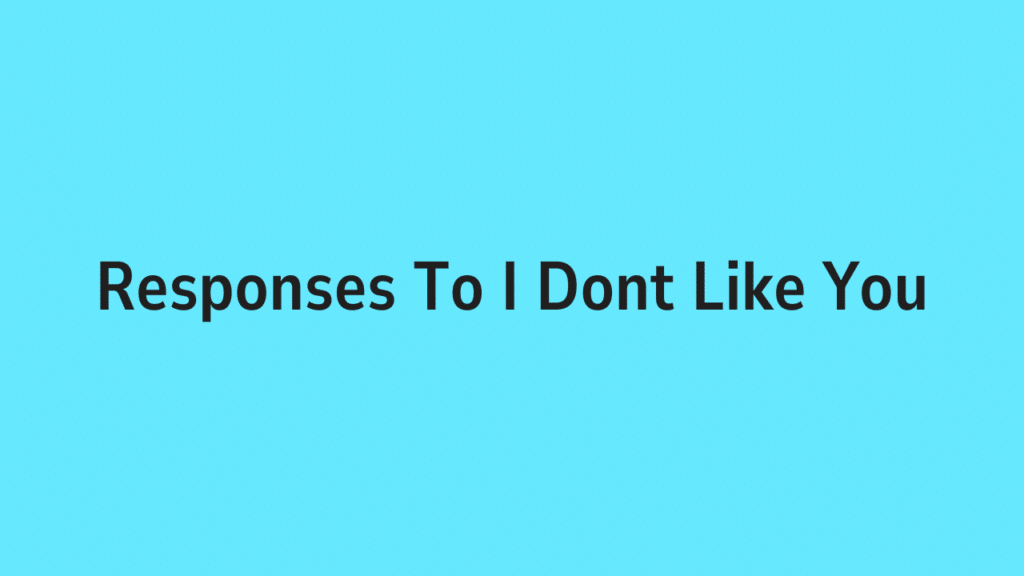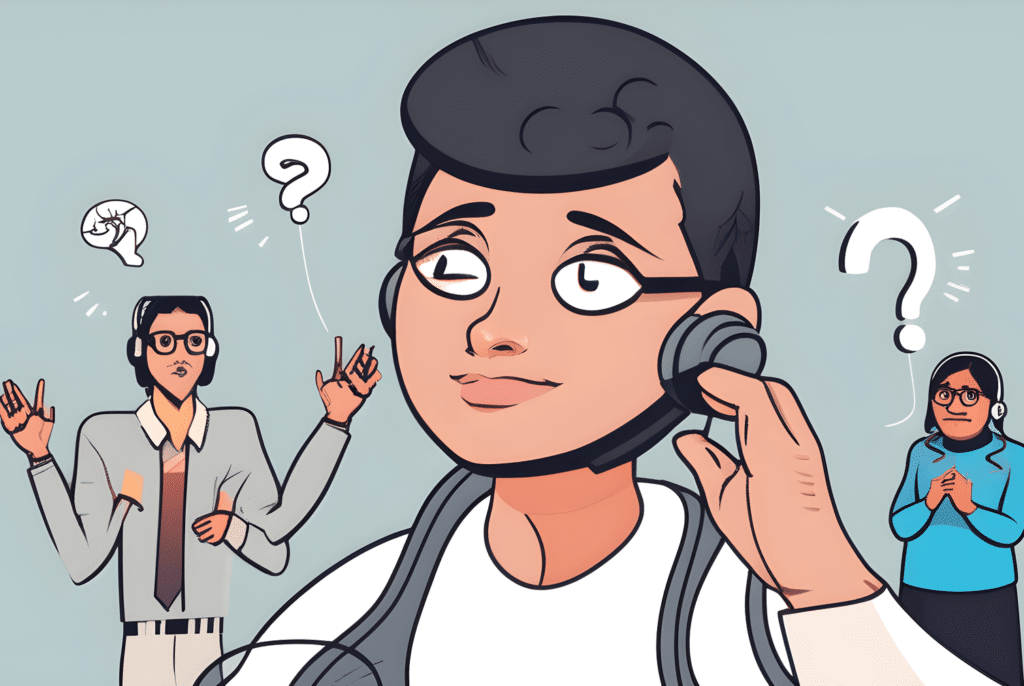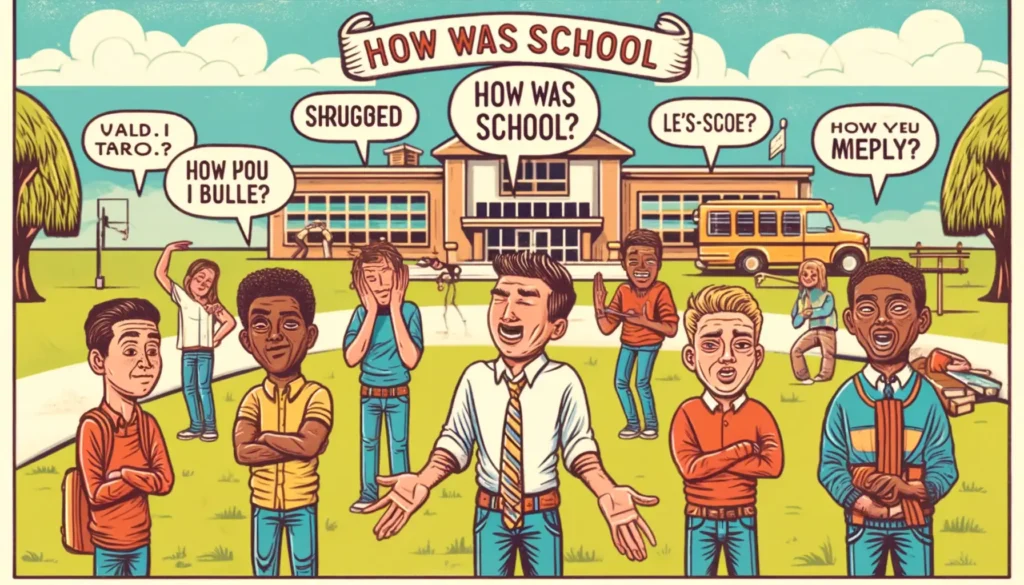Hearing the phrase “I don’t like you” can be a jarring experience. Whether it comes from a friend, a coworker, or a romantic partner, this statement can stir up a range of emotions, including confusion, hurt, frustration, or even anger. However, how you respond to such negativity can greatly impact the outcome of the conversation and the dynamics of the relationship.
In this blog post, we’ll explore different ways to respond to “I don’t like you.” We’ll cover various scenarios, including when the statement is said in frustration, jest, or as part of a deeper conflict. Understanding how to respond with calm, grace, and self-respect is crucial for maintaining healthy relationships and managing your emotions. We’ll also provide examples, strategies, and a table of responses to guide you through handling this situation.
Why “I Don’t Like You” Hurts
Before we dive into how to respond, it’s important to understand why hearing “I don’t like you” can be such a painful experience. The words can cut deep, especially when they come from someone you care about or someone whose opinion matters to you. Here are some reasons why this statement can be particularly hurtful:
- Rejection:
- “I don’t like you” can feel like a form of rejection. It may feel like the person is dismissing you or your worth, which can trigger feelings of inadequacy or self-doubt.
- Vulnerability:
- If you’ve been open and vulnerable with the person, this comment can make you feel exposed and hurt, as if your trust or effort has been disregarded.
- Unexpectedness:
- Often, when we think a relationship is going well, hearing such a blunt statement can feel like a complete surprise. This can make it more difficult to process and respond to calmly.
- Miscommunication:
- Sometimes, the phrase might be said in the heat of the moment or out of frustration, rather than being an accurate reflection of their feelings. In these cases, responding too quickly or emotionally can escalate the situation.
Understanding the emotional impact of this statement can help you craft a thoughtful, composed response that focuses on understanding and resolution rather than reacting impulsively.
Different Contexts of “I Don’t Like You”
The phrase “I don’t like you” can arise in many different situations, and your response will vary depending on the context. Here are a few common scenarios in which someone might say this, and how to approach them:
- In a Conflict or Argument
- If the person says “I don’t like you” during a heated argument, their feelings may be influenced by anger or frustration. It’s possible that they don’t genuinely mean it but are just lashing out in the moment.
- Casual or Playful Remarks
- Sometimes, “I don’t like you” may be said in a joking or playful manner. In this case, the tone of the conversation may be more lighthearted, and your response should reflect that.
- Honest Expression of Dislike
- In more serious situations, someone may genuinely not like you for reasons they may or may not explain. It’s important to stay calm and try to understand why they feel this way.
- Misunderstanding or Miscommunication
- There could be situations where the person says “I don’t like you” due to a misunderstanding. In these cases, a response aimed at clearing up the confusion might be necessary.
Now that we understand the different contexts, let’s dive into how to respond to each situation.
1. Responding to “I Don’t Like You” During an Argument
If someone says “I don’t like you” during an argument, it’s important not to react immediately with defensiveness. This statement is often a reflection of heightened emotions and may not reflect their true feelings. Here are some strategies for handling this situation:
a. Stay Calm
- Take a deep breath and avoid responding impulsively. Responding in anger or frustration will only escalate the situation.
- Example: “I can see you’re upset, and I’d like to understand why you feel this way.”
b. Ask for Clarification
- Instead of assuming their dislike is permanent, ask questions to understand what caused this reaction. This gives them the space to explain their feelings, and it opens the door to resolution.
- Example: “Can you tell me what’s bothering you? I want to understand so we can resolve this.”
c. Acknowledge Their Emotions
- Even if you don’t agree with their feelings, acknowledge that they’re entitled to their emotions. Validating their feelings can help defuse tension.
- Example: “I understand you’re frustrated right now, but I’d really like to work through this with you.”
2. Responding to “I Don’t Like You” in a Playful or Casual Setting
If the statement is made in a playful context, such as between friends or in a lighthearted conversation, a more relaxed and humorous response is appropriate. Here are some ways to respond in this situation:
a. Play Along with Humor
- Lightly joke back to keep the mood fun and avoid any awkwardness. A playful response can show that you’re not taking it too seriously.
- Example: “Oh no, I guess I’ll have to start looking for new friends then!”
- Example: “Well, I guess I’ll just go cry into my ice cream now.”
b. Respond Lightly and with a Smile
- Sometimes, just acknowledging it with a playful tone is enough to keep the conversation going without letting it get too serious.
- Example: “I know you’re just kidding, but I’m still going to take that as a challenge!”
3. Responding to Genuine Dislike or Serious Feelings
If someone is expressing genuine dislike, it’s crucial to remain composed and open to their feelings. This situation might be more difficult to navigate, but handling it with maturity can lead to understanding and resolution.
a. Listen Actively
- Allow the person to express their feelings fully before responding. Sometimes, people just need to feel heard and understood.
- Example: “I hear what you’re saying. Can you tell me what I’ve done to upset you?”
b. Apologize if Appropriate
- If you feel that you’ve done something to contribute to the situation, offer a genuine apology. Be specific about what you’re apologizing for, and show that you understand their perspective.
- Example: “I’m really sorry if I did something that made you feel this way. That wasn’t my intention.”
c. Respect Their Feelings
- Even if you don’t agree with their assessment of you, it’s important to respect their feelings and acknowledge their perspective.
- Example: “I respect that you feel this way, and I’d like to understand how we can move forward.”
d. Give Them Space
- Sometimes, giving the other person some time and space to cool down is the best way to handle a situation like this. They may need time to process their emotions.
- Example: “I understand this is a tough conversation, and I think we both might need a little space right now to think things through.”
4. Responding to Misunderstanding or Miscommunication
There are times when the person may not actually dislike you, but the comment was made due to a misunderstanding. In these cases, clarifying the situation with patience is essential.
a. Clarify the Situation
- If you believe the person has misunderstood something, gently clarify the situation and offer your perspective.
- Example: “I think there’s been some confusion here. Can we talk about what happened?”
b. Remain Open to Explanation
- Encourage the person to share their side and be open to listening. They may have misinterpreted your actions or words.
- Example: “I’m open to hearing what you feel went wrong. Let’s talk it through.”
Table: Sample Responses to “I Don’t Like You”
| Scenario | Response Example |
|---|---|
| During an Argument | “I can see you’re upset, can we talk about what’s bothering you?” |
| Playful Setting | “Oh no, guess I’ll need a new best friend then!” |
| Genuine Dislike (Serious) | “I’m sorry you feel that way. Can you tell me what happened?” |
| Miscommunication | “I think there’s been a misunderstanding. Can we talk about it?” |
| Offering Space | “I think we both need some time to think. Let’s revisit this later.” |
Conclusion: Responding with Poise and Understanding
Hearing “I don’t like you” can be difficult, but how you respond can determine the direction of the conversation and the future of your relationship with that person. Whether the statement is made in frustration, jest, or as an honest expression of dislike, it’s important to remain composed, empathetic, and thoughtful in your response.
By staying calm, listening actively, and responding with respect and clarity, you can navigate the situation with grace. If the situation calls for it, take the opportunity to clear up any misunderstandings or offer an apology where needed.
The key is to avoid reacting impulsively or emotionally. Responding with maturity and confidence can often turn a potentially hurtful conversation into an opportunity for understanding, growth, and resolution.
So, the next time someone says “I don’t like you,” take a



